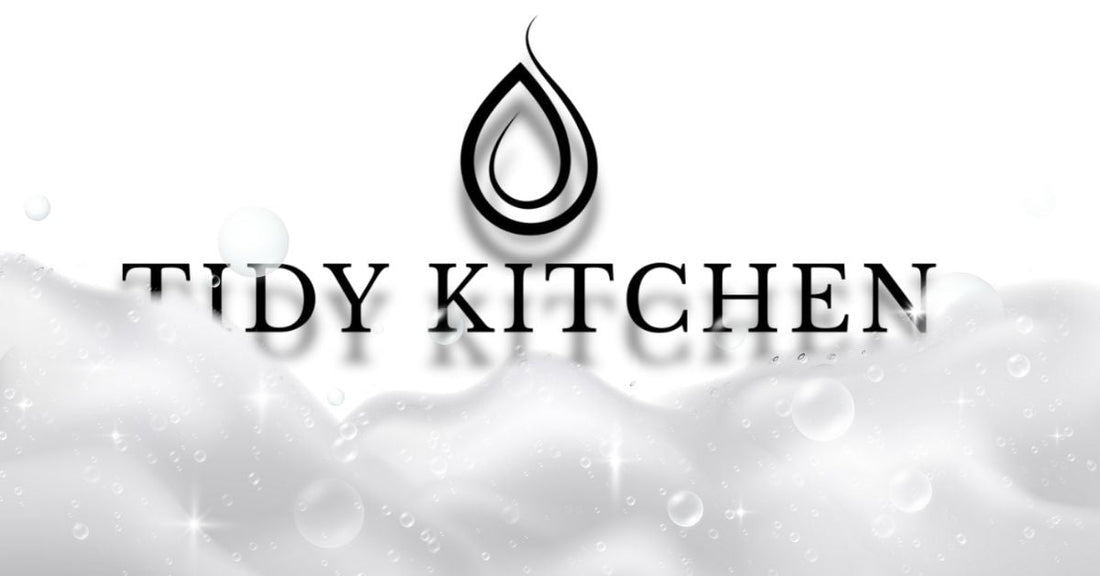
Guide to Eco Friendly Kitchen Foaming Refills
Crafting a kitchen that harmonizes sustainability with elegance is a pursuit worthy of every eco-conscious home. Foaming refills elevate this vision, offering a seamless blend of practicality and environmental stewardship. With Tidy Kitchen at the forefront, their foaming hand soap tablets redefine hand soap routines, cutting plastic waste and embracing zero waste principles. This comprehensive page unveils how to integrate guide to eco-friendly kitchen foaming refills into your daily life, answering key questions and sharing expert insights to transform your kitchen into a beacon of sustainability.
The Rise of Foaming Hand Soap in Eco-Friendly Kitchens
Foaming hand soap is a cornerstone of modern eco-friendly kitchens, delivering a luxurious foam that cleans effectively while minimizing waste. Foaming soap is created by mixing liquid soap with air, which the dispenser introduces to produce foam. This process creates less waste compared to traditional hand soaps. Unlike traditional liquid hand soap packaged in plastic bottles, Tidy Kitchen’s foaming soaps use dissolvable tablets housed in compostable packaging. This plastic-free approach slashes the environmental impact of single-use plastic containers, which contribute to the 35.7 million tons of plastic discarded annually in the U.S. By choosing Tidy Kitchen’s foaming hand soap tablets, you’re opting for a sustainable solution that keeps your sink area pristine and your conscience clear.
There are many eco-friendly hand soaps available, including bar soaps, liquid soaps in refill pouches, and foaming hand soaps, all designed to reduce plastic waste and promote sustainability.
Why Tidy Kitchen’s Foaming Refills Shine
Tidy Kitchen’s foaming hand soap tablets are a game-changer for zero waste enthusiasts. These tablets, available in soothing coconut and lavender scents, come in a variety of fragrances to enhance your cleaning routine. They dissolve in water within a foaming soap dispenser to create a rich, gentle lather. Crafted with natural ingredients, they’re kind to skin and free of harsh chemicals, making them ideal for frequent use. Compatible with Tidy Kitchen’s glass hand soap dispenser, these refills eliminate the need for plastic bottles, offering a durable, recyclable alternative. Customers praise the brand for its commitment to small businesses and eco-friendly innovation. As a company dedicated to innovative, sustainable packaging and refill systems, Tidy Kitchen makes every purchase a step toward a greener life.
How to Use Foaming Refills Effectively
Foaming refills are generally more convenient and eco-friendly than traditional soap options.
Integrating foaming refills into your kitchen routine is effortless with Tidy Kitchen. Here’s how to mix and use their tablets:
- Fill your soap dispenser with warm water to the designated line.
- Drop one tablet into the dispenser and wait for it to dissolve completely (about 10-15 minutes).
- Gently shake to ensure an even mix.
- Pump to dispense a luxurious foam for a thorough wash.
Dispensers can be easily refilled multiple times, supporting a zero waste routine.
This plastic-free system saves space and reduces waste, as the minimal packaging is fully compostable. For best results, pair with Tidy Kitchen’s premium glass soap dispenser, designed for longevity and style.
Pro Tip: Maintain Your Foaming Soap Dispenser
To keep your foaming soap dispenser in top condition, rinse it thoroughly between refills to prevent clogs. High-quality pumps ensure smooth operation and longevity, reducing the need for replacements. Use warm water to dissolve tablets fully, and store extras in a dry, cool place to preserve their fragrance and efficacy. This ensures your dispenser remains a sustainable centerpiece in your kitchen or bathroom.
The Environmental Benefits of Foaming Refills
Foaming refills are a powerful tool for less plastic waste. Traditional liquid soap relies on plastic bottles, which often end up in landfills or oceans. Tidy Kitchen’s tablets arrive in plastic-free packaging, reducing the need for recycling complex materials. Foaming refills can also be purchased in bulk, further reducing packaging waste and environmental impact. By switching to foaming soaps, you create less waste and lower your kitchen’s environmental impact. Choosing products that are purchased in eco-friendly packaging supports sustainability. The lightweight tablets also require less energy to ship compared to heavy liquid hand soap, further enhancing their eco-friendly credentials.
Comparing Foaming Refills to Liquid Soap
Foaming hand soap uses less soap per wash than liquid soap, making it more efficient and cost-effective. In many eco-friendly kitchens, foaming refills have replaced less sustainable liquid soap options, offering a greener alternative. The airy foam delivers a thorough clean while conserving materials, unlike body wash or liquid hand soap that often require larger quantities. Tidy Kitchen’s tablets are concentrated, ensuring each refill lasts longer, saving you shop trips and reducing packaging waste. This efficiency makes foaming soaps a superior choice for zero waste kitchens.
Pros and Cons of Foaming Refills
Pros:
- Innovative Idea: The idea of refillable soap systems offers a practical and eco-friendly alternative to traditional soap packaging, emphasizing convenience, cost savings, and sustainability.
- Eco-Friendly: Compostable packaging and plastic-free design reduce waste.
- Efficient: Uses less soap per wash, extending the life of each tablet.
- Gentle: Natural ingredients suit sensitive skin, with delightful scents like lavender.
- Durable: Pairs with recyclable glass or aluminum dispensers for long-term use.
Cons:
- Initial Cost: Investing in a soap dispenser requires an upfront purchase.
- Adjustment Period: Some may need time to adapt to the tablet system.
| Feature | Description | Sustainability Benefit |
|---|---|---|
| Foaming Soap Tablets | Dissolvable tablets in coconut or lavender scents | Replaces single-use plastic bottles |
| Compostable Packaging | Paper-based, biodegradable materials | Minimizes landfill waste |
| Glass Dispenser | Recyclable glass with stainless steel pump | Durable, reduces plastic dependency |
| Efficient Usage | Less soap per wash, longer-lasting refills | Conserves resources, cost-effective |
Pairing Refills with the Right Dispenser
A foaming soap dispenser is essential for maximizing foaming refills. Tidy Kitchen’s brown glass dish soap dispenser and glass dispensers are crafted from recyclable materials, offering a durable, stylish alternative to plastic. The stainless steel pump ensures smooth operation, while the glass resists wear, unlike plastic containers that degrade over time. These dispensers elevate your sink area, making every wash a sustainable ritual.
DIY Foaming Refill Alternatives
For those who love a hands-on approach, creating your own foaming hand soap is simple:
- Combine 1/4 cup of castile soap, 3/4 cup of distilled water, and 1 tsp of baking soda for a gentle clean.
- Add 10 drops of lavender essential oil for a calming fragrance.
- Fill a foaming soap dispenser and shake to mix.
This DIY soap can also help tackle everyday stains on dishes and surfaces. For an even more eco-friendly cleaning routine, try using a reusable sponge, such as Scrub Mommy, which is durable and reduces waste compared to disposable alternatives.
While DIY options are eco-friendly, they may lack the consistency of Tidy Kitchen’s tablets. For a reliable, plastic-free solution, Tidy Kitchen’s refills are unmatched in quality and convenience.
Reusable Products in the Kitchen
In addition to using foaming refills, adopting reusable products throughout your kitchen is essential to creating a truly eco-friendly space. Swapping out disposable items for durable, reusable alternatives helps reduce waste and conserves resources. For example, replace single-use paper towels with washable cloth towels or microfiber cloths that can be laundered and reused multiple times. These reusable cloths not only cut down on paper waste but also provide excellent absorbency and durability, making them a practical choice for everyday kitchen cleaning tasks.
Another impactful change is using reusable food storage containers made of glass, stainless steel, or silicone instead of single-use plastic containers or bags. These containers help reduce plastic waste and are often more durable and safer for food storage. Additionally, consider incorporating reusable produce bags and beeswax wraps to replace plastic wrap and bags when storing fruits, vegetables, and leftovers.
Zero Waste?
Composting is another key practice for reducing kitchen waste. By composting food scraps such as vegetable peels, coffee grounds, and eggshells, you divert organic waste from landfills and create nutrient-rich soil for gardening. Many communities offer compost pickup services, or you can start a home compost bin or worm farm to manage kitchen scraps sustainably.
Using products like Tidy Kitchen’s foaming hand soap tablets alongside these reusable kitchen items creates a comprehensive zero waste kitchen routine. This holistic approach not only minimizes plastic and paper waste but also fosters mindful consumption and environmental responsibility. Embracing reusable products and composting supports a circular economy, where materials are kept in use longer and waste is minimized.
By integrating reusable products in your kitchen, you contribute to a healthier planet while enjoying the benefits of a clean, organized, and sustainable cooking space. Whether it’s swapping paper towels for cloths, choosing reusable containers, or composting food scraps, every small change adds up to a significant positive environmental impact. Together with Tidy Kitchen’s eco-friendly foaming refills, these practices help transform your kitchen into a model of sustainability and conscious living.
Reducing Kitchen Waste Beyond Soap
Foaming refills are just one part of a zero waste kitchen. Replace paper towels with reusable cloths and hang them to dry after use to cut paper waste. Compost food scraps to minimize landfill contributions. Tidy Kitchen’s ethos extends to these practices, encouraging sustainable choices that stick. By integrating refills with other eco-friendly habits, you amplify your kitchen’s positive environmental impact, benefiting your whole house.
The Role of Packaging in Sustainability
Packaging is a critical factor in sustainability. Tidy Kitchen’s compostable packaging for foaming hand soap tablets eliminates plastic waste, unlike laundry pods or liquid soap often encased in plastic. The minimal packaging reduces clutter and supports recyclable materials like paper, aligning with zero waste goals. Making sustainable shopping choices, such as selecting products with minimal packaging, further supports eco-friendly goals. This thoughtful design ensures every purchase supports a cleaner environment.
Why Tidy Kitchen Leads the Way
Tidy Kitchen is more than a brand—it’s a commitment to eco-friendly living. Their foaming refills and dispensers are designed with sustainability at heart, using recyclable glass and aluminum to replace plastic. The brand’s focus on natural ingredients and plastic-free packaging resonates with customers seeking small businesses that prioritize the environment. Stay tuned for new scents and innovations from Tidy Kitchen at tidykitchen.us.
Making Foaming Refills a Daily Habit
Adopting foaming refills is a small change with big impact. Each tablet replaces a plastic bottle, reducing waste and clutter. Use Tidy Kitchen’s dispensers in the kitchen and bathroom for a cohesive, eco-friendly routine. The ease of dropping a tablet and filling with water makes sustainability accessible, ensuring your dishes and hands stay clean without harming the planet. Tidy Kitchen’s refills are designed to be safe for the environment when washed down the drain, so you can feel confident about your impact. Choosing eco-friendly refills also makes your daily washing routines more sustainable.
The Future of Eco-Friendly Kitchens
Foaming refills are shaping the future of eco-friendly kitchens. Tidy Kitchen’s innovative tablets and dispensers offer a blueprint for zero waste living, blending style, efficiency, and sustainability. By choosing Tidy Kitchen, you’re investing in a brand that champions less waste and a healthier environment. Transform your kitchen today and let every wash reflect your commitment to a sustainable tomorrow.
